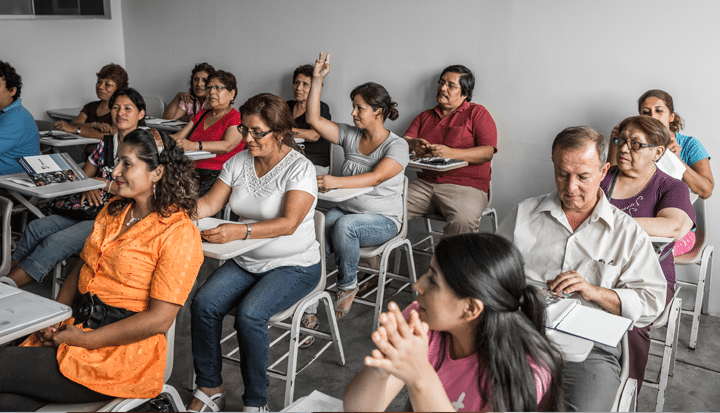In 2012, multinational brewer SABMiller took stock of all of the corporate social investment programs in its portfolio in the six Latin American countries in which it is the market leader: Colombia, Peru, Ecuador, Panama, Honduras, and El Salvador. What they found—42 separate, often small-scale initiatives—was perhaps not surprising, given that SABMiller’s subsidiaries in those countries are all local companies with independent operating histories in the range of 100 years. What they found did highlight an opportunity to do something bigger, more integrated, capable of capturing economies of scale to reach more people and have a greater impact.
SABMiller Latin America and its subsidiaries put their heads together, invited outside stakeholders, and through a process of consultation lasting approximately a year, decided that the biggest opportunity they had to generate impact at scale was through a single regional corporate investment program linked to the value chain—empowering the many small-scale retailers that sell their products. Despite being small-scale, low-income, and in business out of necessity more often than entrepreneurial opportunity, these retailers are critical to SABMiller, accounting for approximately 40% of its sales volume in Latin America.
The reach target SABMiller chose when it launched this new program, 4e Camino al Progreso , in late 2013 was ambitious: 40,000. But a year later, the program converged with a new worldwide emphasis within the company on the opportunity to contribute to sustainable development by strengthening the small businesses in the value chain. The target went up to 190,000.
Business Fights Poverty and the CSR Initiative at the Harvard Kennedy School were invited to look into the 4e program last year. Today, we are happy to share what we found in the report “Empowering Small Businesses in Corporate Value Chains: The Case of SABMiller’s 4e Camino al Progreso Program.” (Click here to download the report).
This is not an impact assessment; with one of its partners, the Multilateral Investment Fund of the Inter-American Development Bank, SABMiller plans to conduct a rigorous impact assessment later this year after two full years in operation.
Rather, our report describes the model in detail for those interested in replicating aspects of it—which include SABMiller businesses in other parts of the world, as Hloni Matsela describes —and outlines some early lessons and key strategic questions facing the program as it begins the long journey to scale by the year 2020. These include:
• The power of investing in the retailer as business owner, head of household, and change agent in the community
• The value of hands-on, personal support both in the classroom and in the store
• The potential of technology to help expand reach at a reduced cost—and how to reconcile this with the value of hands-on, personal support
• The need to create measurable value for the business and align closely with sales in order to maximize the sustainability and social impact of the program
• The impact the broader enabling environment, including access to finance , government policy, strong intermediaries and representative bodies, and physical security, can have on retailers’ prospects for business growth and success
• The prospects for expanding the partnership to address enabling environment issues, provide greater support and services, and share the cost of achieving impact at scale
We will be addressed many of these issues in a live online discussion with the 4e program partners and other experts to mark Global Partnerships Week. The discussion is still open – please share your insights here!










